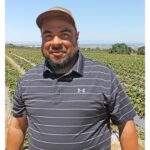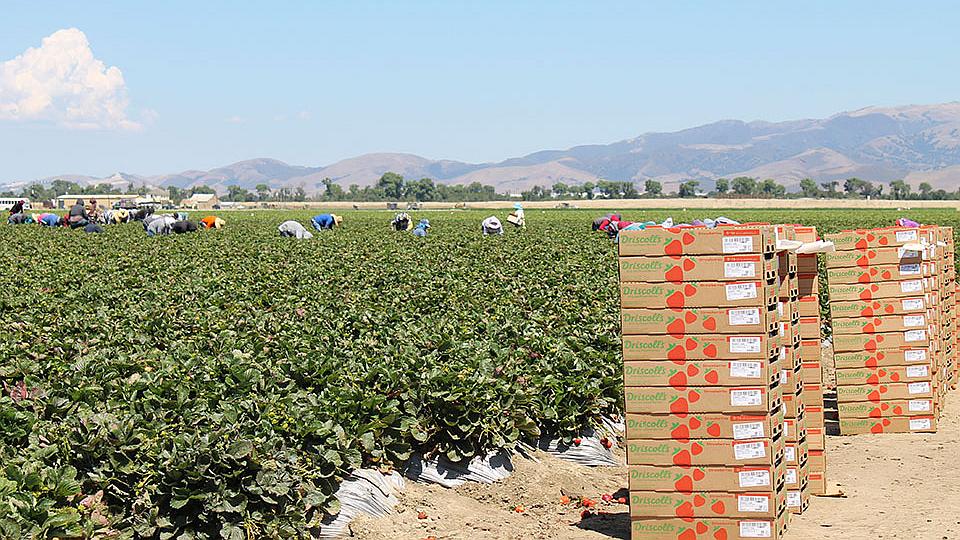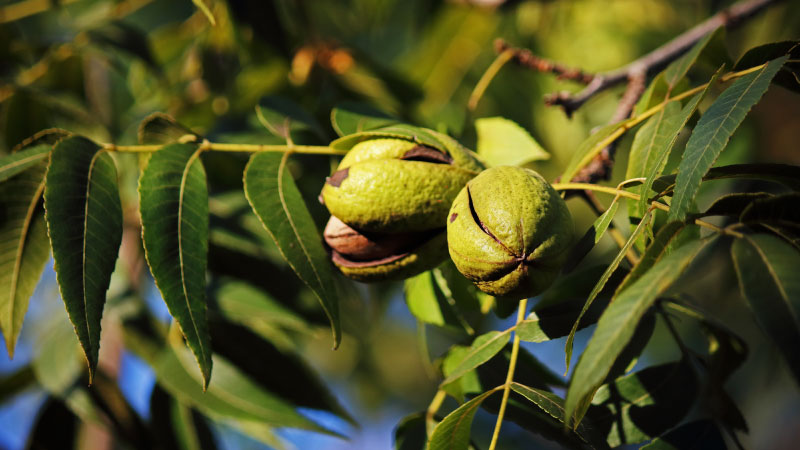Why This Organic Strawberry Grower Is Questioning the Future
A decade after drawing up plans to transition all 40 acres of his strawberries to organic, Salinas, CA, grower David Alvarado is considering going back to when his dad was in charge and the farm was 100% conventional.
When asked why, Alvarado succinctly sums up his recent experience with organic production: “More inputs and higher labor costs for less yield.”
He doesn’t like to put a fine point on prices but says at times he gets just 7% more for organic berries than their conventional counterparts. What’s irritating is he sees consumers pay a lot more than that.
“I go to the grocery store and snap pictures of the organic and conventional clam shells,” he says. “Organic is almost double the price at higher end stores.”
But growers are not enjoying higher profits from those high-priced berries, Alvarado says. It seems there are enough organic berries on the market that they are treated now as more of a commodity, and the price is tied to conventionally grown fruit.

David Alvarado
Photo by David Eddy
“What’s the biggest indicator of my problem? If you look up USDA market figures for strawberries, you’ll see the conventional price is $20, and organic is just $21.50,” he says. “If the conventional price drops, the organic price does too.”
In 2008, Alvarado and his dad Jesus farmed 100% conventionally but were considering going organic as the market looked good. In 2012, the market was still great, and they began the transition.
CONVERSION BEGINS
Alvarado says they were encouraged in the endeavor by both their shipper, Driscoll’s, as well as the California Strawberry Commission (CSC). But no organic land was available, so they transitioned their own existing conventional acreage to organic, which is quite a commitment. The strawberries grown on transitional ground must be treated as organic, but they are priced conventionally for the three-year transition to organic, which applies to all crops.
“We had to farm it organically but sell everything into conventional markets,” he says. “That became a big burden. It’s roughly 30% more to farm organically.”
About half of that added cost is for increased input prices. Alvarado says the organic inputs, especially fertilizers, cost more, but they are less efficient. One unit of organic N simply costs more than one unit of conventional N, and isn’t as effective, he says. About a third of the added costs come in the form of lower yields, which also account for the remainder of the added cost for labor. Workers pick fruit at a piece rate, and they can pick more a lot faster in a conventional field.
“I have to compensate,” he says. “Why would you stop making $2 conventional (per box) when in organic I have way less berries.”
Undeterred by all the obstacles in going 100% organic, the Alvarados achieved the status in 2016. But shortly thereafter, prices began to dive. In 2022, they went back to farming half their acreage conventionally, partly on the theory that if you can’t beat ‘em, join ‘em.
“The conventional market drives the organic market prices, at least it’s turned out to be that way. I can’t farm berries organically in the future unless something changes,” he says. “Organic is no longer a good business for us. For me to tell this story is very hard, because I’m the one who convinced my dad to go along with it.”
Alvarado felt bad about the decreased profits. At his dad’s birthday party in late August, Jesus Alvarado called his son over.
“’Mijo,’ he said — he always calls me ‘Mijo’ — he laughed and said: ‘I’m thankful you allowed me to come back to conventional,’” Alvarado says, chuckling at the memory.
STARTING AS A PICKER
Jesus Alvarado is something of an internet star, as he has appeared in many videos for both Driscoll’s and the CSC. He deserves the status, as he’s worked himself up after starting as a picker many years ago. He was encouraged by a series of bosses enamored with the senior Alvarado’s work ethic.
One of the videos — many of which are available on YouTube — produced by the CSC is titled “Jesus Alvarado’s American Dream/Started in California Strawberry Fields,” in which he talks about his background as a picker.
David Alvarado is understandably proud of his dad’s achievements, and says Jesus Alvarado got his break when he was hired as a manager by a vegetable grower who wanted to be berry farmer.
“He did it with my dad’s help,” David Alvarado says. “Then his boss offered to make him a partner, but he said he didn’t have money. But the man said, ‘We don’t need your money, we need your brain.’”
In 2005, they decided to go their separate ways, and with Reiter Berry, Fresal Farms was opened. In 2010 they ended that partnership and became sole owner.
“It’s been a great transition,” Alvarado says. “A story of a harvester chasing the American Dream. And I’m the son of a harvester.”

Grower David Alvarado says most consumers don’t realize organic growers face labor costs far greater than for conventionally grown fruit.
Photo by David Eddy
UNCERTAIN FUTURE
Unfortunately, it’s a story that may not have a happy ending, at least for those who like organic strawberries. Alvarado lays part of the blame at the feet of the stakeholders, who have outsized, undeserved influence.
“Stakeholders don’t even have any skin in the game,” he laments. “Farmers aren’t considered as the guys who make it happen. Consumers relate to stakeholders because that’s the label they see in the store.”
He understands that stakeholders are fighting for shelf space with lots of other fruits found in a grocery store these days, but he doesn’t understand why he doesn’t get paid a premium when the organic fruit costs so much at the store. They get lumped in with conventional fruit, which he says simply isn’t fair.
“We are so diluted by the numbers game,” he says. “If it costs me 30% more, why shouldn’t I get a 30% premium? Why would I continue to do this at a small premium?”
The answer is he won’t. After farming 100% organic for the past six years, he’s considering a serious change. In 2024, he’s he’s almost certain he will not plant organic berries if prices don’t improve.
“I kept saying the organic market is going to turn around,” he says. “But it’s been a long journey. It’s been fun, but it’s hurt in the pocket.”
What’s infuriating for Alvarado is he’s certain consumers would be dismayed at his predicament, and that it’s a shame he can’t produce the fruit they want to keep their families healthy.
“If consumers know that if they pay 25 cents more (per pound) to keep farmers in business, they will pay it,” he sighs. “That’s what’s so frustrating.”









